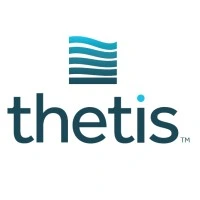
Pharmaceuticals Thetis Secures $8.975M for TP-317 Ulcerative Colitis Trial
Thetis Pharmaceuticals LLC, a clinical-stage company focused on developing TP-317, a pioneering small molecule drug targeting the BLT1 receptor to treat inflammatory bowel disease (IBD), Crohn’s disease, and ulcerative colitis, has announced that it has secured an additional $8.975 million in program-related investment funding from The Leona M. and Harry B. Helmsley Charitable Trust. This new funding increases Helmsley’s total investment in support of oral applications of TP-317 for Crohn’s disease treatment to $14,044,660. The newly approved funds will specifically support a Phase 1b clinical trial of TP-317 in ulcerative colitis patients, aimed at determining safe and effective dosing for potential therapeutic use.

Current treatment options for patients suffering from Crohn’s disease, ulcerative colitis, and inflammatory bowel disease (IBD) have been inadequate, with only a small portion of patients achieving lasting remission. Effective treatment requires not only reducing inflammation but also promoting the repair of the intestinal lining to protect underlying tissues from harmful microbes and pro-inflammatory triggers. Unfortunately, no approved therapies currently address both these therapeutic goals effectively to achieve sustained remission. TP-317, developed by Thetis Pharmaceuticals, is a promising new treatment option. It is a proprietary compound derived from Resolvin E1 (RvE1), a naturally occurring lipid that engages the LTB4-BLT1 pathway to control inflammation and promote intestinal barrier integrity without impairing the body’s natural ability to fight infections.
Thetis Pharmaceuticals has recently announced that it secured an additional $8.975 million in program-related investment funding from The Leona M. and Harry B. Helmsley Charitable Trust. This funding brings Helmsley’s total investment in support of TP-317 for Crohn’s disease treatment to $14,044,660. This new capital will be used to support a Phase 1b clinical trial of TP-317 in ulcerative colitis patients, aimed at identifying safe and effective dosing.
Jessica Langer, Ph.D., Program Officer at Helmsley, emphasized the significance of this partnership: “The Crohn’s Disease Program at Helmsley is dedicated to addressing the needs of people living with the disease by championing research and technologies that will improve care and treatment.” Langer added, “With a previous program-related investment in the form of a loan from Helmsley, Thetis successfully completed a Phase 1a study in healthy volunteers, demonstrating the favorable safety, tolerability, and pharmacokinetic profiles of TP-317. In this next phase, we hope to see evidence that TP-317 could expand treatment options and improve the quality of life for people with IBD, including those with Crohn’s disease.”
One of the key benefits of TP-317 lies in its unique barrier protective mechanism, which sets it apart from existing therapies. Unlike conventional treatments that often rely on immune suppression, TP-317 helps IBD patients without the associated side effects of immune system suppression.
According to Dr. Bruce E. Sands, MD, MS, a prominent gastroenterologist at the Icahn School of Medicine at Mount Sinai, “TP-317 offers a unique barrier protective mechanism that distinguishes TP-317 from existing therapies, with the potential to help IBD patients without the side effects associated with immune suppression.” Dr. Sands, a paid clinical advisor to Thetis, further noted that TP-317 has the potential to revolutionize treatment for Crohn’s disease and ulcerative colitis by providing a novel therapeutic approach.
Gary Mathias, Co-Founder and CEO of Thetis, expressed gratitude for Helmsley’s support, stating, “Helmsley has been remarkable in supporting our vision for a novel approach that addresses a critical unmet medical need in IBD.” Mathias continued, “We greatly appreciate their support and are excited to advance this unique therapy into patient studies.”
The clinical progress of TP-317 represents a significant milestone for Thetis Pharmaceuticals in its mission to address chronic inflammatory diseases and cancer. The company’s lead candidate, TP-317, is the first oral RvE1 drug targeting the LTB4-BLT1 pathway. This mechanism has the potential to restore immune homeostasis and resolve disease naturally, without the need for immune-suppressing therapies.
Thetis Pharmaceuticals is a clinical-stage pharmaceutical company focused on developing innovative treatments for chronic inflammatory diseases and cancer. With the continued support of the Helmsley Charitable Trust and other investors, Thetis Pharmaceuticalsis poised to transform the treatment landscape for IBD and other chronic inflammatory conditions. By advancing TP-317 through clinical trials, Thetis Pharmaceuticalsaims to offer a new therapeutic option that not only controls inflammation but also promotes the restoration of the intestinal barrier, providing lasting relief for patients with Crohn’s disease, ulcerative colitis, and other forms of IBD.




